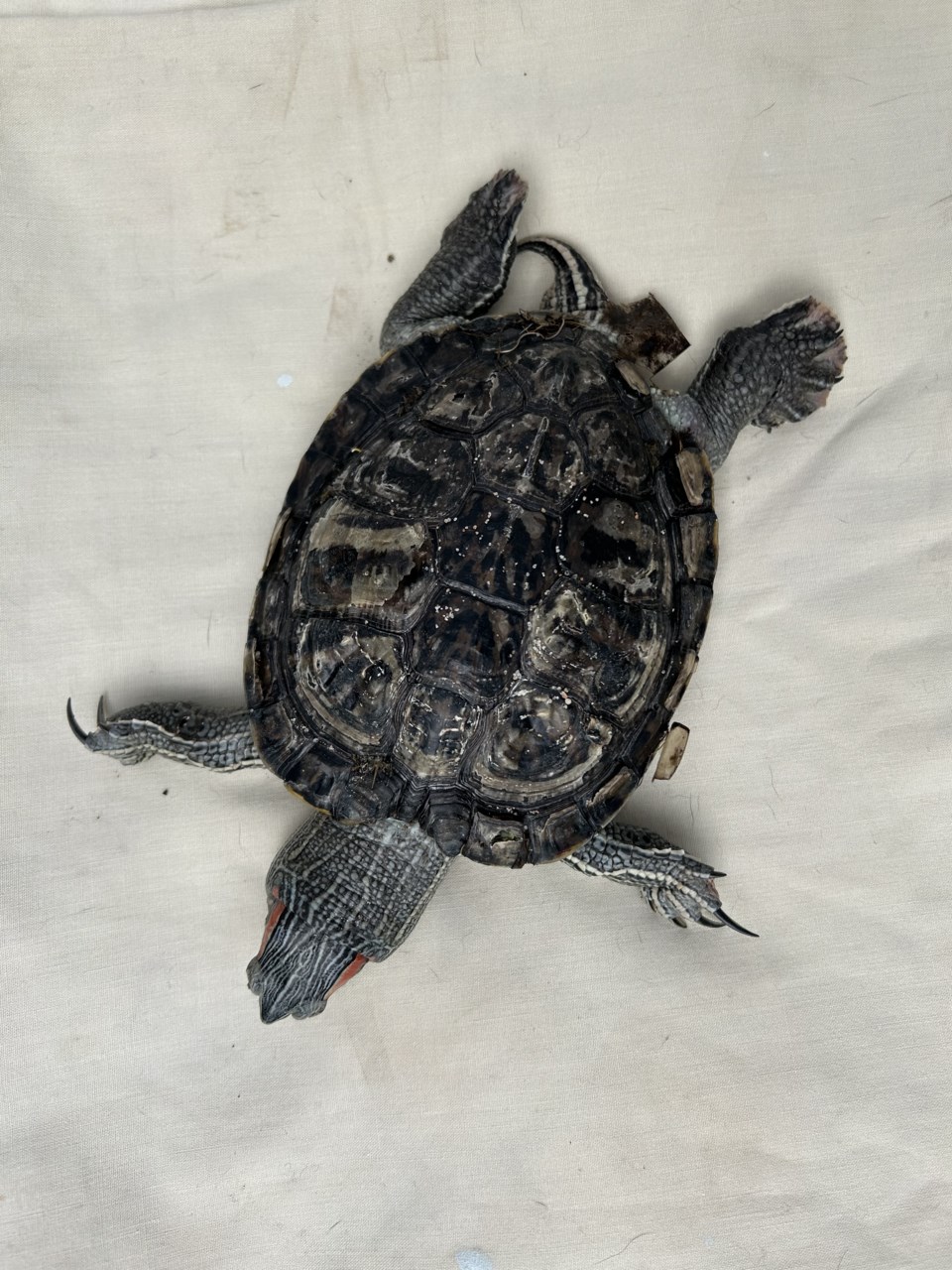Midland resident Susan Newell was out for an early morning walk with her dog Olive when she came across something that seemed amiss.
On this recent morning, Newell found a turtle that wasn't moving on the beach in Little Lake Park.
"My first thought was it may be the turtle I saw in around February at the same location that had been alive with its head out of the water," she said. "I checked a few hours later and it was gone so figured it was OK."
This time around, however, Newell ascertained that the turtle was dead. While some turtles are easily identifiable by their carapaces or markings, this one looked different than ones she knew as native to Ontario.
"I was unable to identify it as a type we have locally, but never thought of human release," she says.
So Newell decided to bring the little guy to the Wye Marsh Wildlife Centre for identification.
At the nature facility, she learned that the dead turtle was a domestic pet called a red-eared slider that must have been “given its freedom by some people who were unaware that it wouldn't survive and would likely die a painful death.”
Wye Marsh executive director Kim Hacker says the release of turtles initially purchased as pets into the wild is a "huge" issue.
“It's the reason why all eight of Ontario's native turtle species are at risk,” Hacker says. “Red-eared sliders outcompete for resources and habitat and outbreed our native species.”
While the Wye Marsh is not a political organization and, therefore, doesn't comment on matters such as this one, Hacker says that on a personal level she feels the sale of pet turtles should be prohibited.
“And it should go without saying the turtles should not be taken from the wild,” Hacker says.
“These turtles can live for 60 years or more and no one wants a pet that long. They're cute when they're small, but they require a tremendous amount of care as they get older.”
And that leaves few options for people who no longer want their pets.
“We, at Wye Marsh, cannot accept surrendered pets that people no longer want, and they absolutely should not be released into the wild,” Hacker says.
“There is one rescue organization in Ontario that we recommend when people come to us.”
The Ontario Turtle Conservation Centre lists three turtle species as endangered (wood, spotted and spiny softshell), one as threatened (Blanding's) and four as of special concern (snapping, eastern musk, northern map and Midland painted).
According to Canada’s Invasive Species Centre, red-eared sliders are an invasive turtle species to Canada, originating from the Mississippi River waterways of the United States.
“A world traveler, this turtle species has introduced populations on every continent except Antarctica,” the centre says on its website. "Due to their popularity as pets in many parts of the world, their primary mode of introduction is through pet release.
“Though small as juveniles, the turtles grow into large adults with complex needs which pet owners may fail to foresee, leading to their unfortunate, and often illegal, release into the wild.
“Their high fecundity and adaptability to new habitats make them effective competitors over native turtles and they are capable of spreading diseases, such as ranavirus, to other wildlife.”
